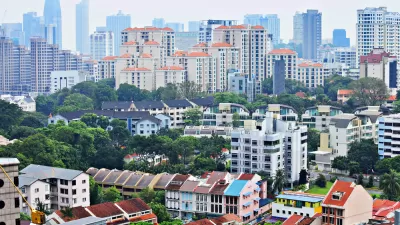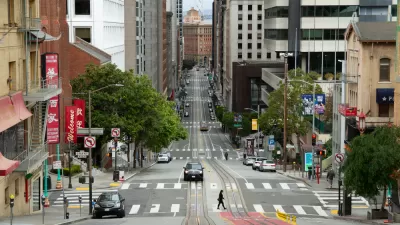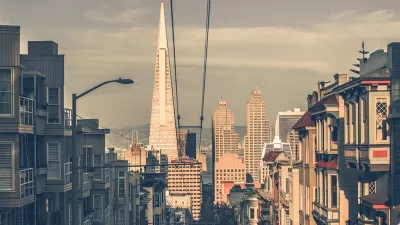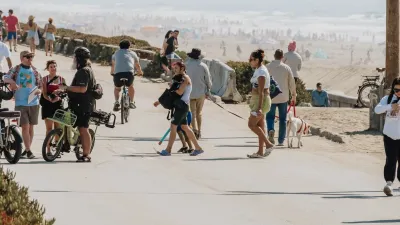For urbanists who have reduced their carbon footprints by driving less and living more densely in smaller homes, researchers from UC Berkeley have some bad news. Your reduced emissions are canceled out by those in the suburbs ringing your city.

"People in the densely populated cores of big cities are responsible for less greenhouse gas emissions, but the more carbon-intensive lifestyle of their far-flung suburbs cancels out any of the benefits, researchers at UC Berkeley found," writes Tony Barboza.
“The affluent suburbanites that commute long distances more than make up for the low-transportation footprint of urban dwellers,” said Daniel Kammen, a professor of energy at UC Berkeley [and co-author of the study "funded by the National Science Foundation and the California Air Resources Board; published in the journal Environmental Science & Technology."]
That is not to discount the lesser impact of city-dwellers who can have "a 50% smaller carbon footprint than a similar-sized family in a distant suburb," writes Barboza.
Stephanie M. Lee of the San Francisco Chronicle also writes about the study, providing examples from San Francisco neighborhoods and its Bay Area suburbs.
Increasing population density in cities reduces emissions - but only to a point before the savings aren't that substantial and quality of life begins to suffer, said Kammen, who worked on the study with doctoral candidate Christopher Jones.
Check out your carbon footprint by zip code with these interactive maps.
FULL STORY: Carbon footprint maps reveal urban-suburban divide

Planetizen Federal Action Tracker
A weekly monitor of how Trump’s orders and actions are impacting planners and planning in America.

Chicago’s Ghost Rails
Just beneath the surface of the modern city lie the remnants of its expansive early 20th-century streetcar system.

San Antonio and Austin are Fusing Into one Massive Megaregion
The region spanning the two central Texas cities is growing fast, posing challenges for local infrastructure and water supplies.

Since Zion's Shuttles Went Electric “The Smog is Gone”
Visitors to Zion National Park can enjoy the canyon via the nation’s first fully electric park shuttle system.

Trump Distributing DOT Safety Funds at 1/10 Rate of Biden
Funds for Safe Streets and other transportation safety and equity programs are being held up by administrative reviews and conflicts with the Trump administration’s priorities.

German Cities Subsidize Taxis for Women Amid Wave of Violence
Free or low-cost taxi rides can help women navigate cities more safely, but critics say the programs don't address the root causes of violence against women.
Urban Design for Planners 1: Software Tools
This six-course series explores essential urban design concepts using open source software and equips planners with the tools they need to participate fully in the urban design process.
Planning for Universal Design
Learn the tools for implementing Universal Design in planning regulations.
planning NEXT
Appalachian Highlands Housing Partners
Mpact (founded as Rail~Volution)
City of Camden Redevelopment Agency
City of Astoria
City of Portland
City of Laramie





























